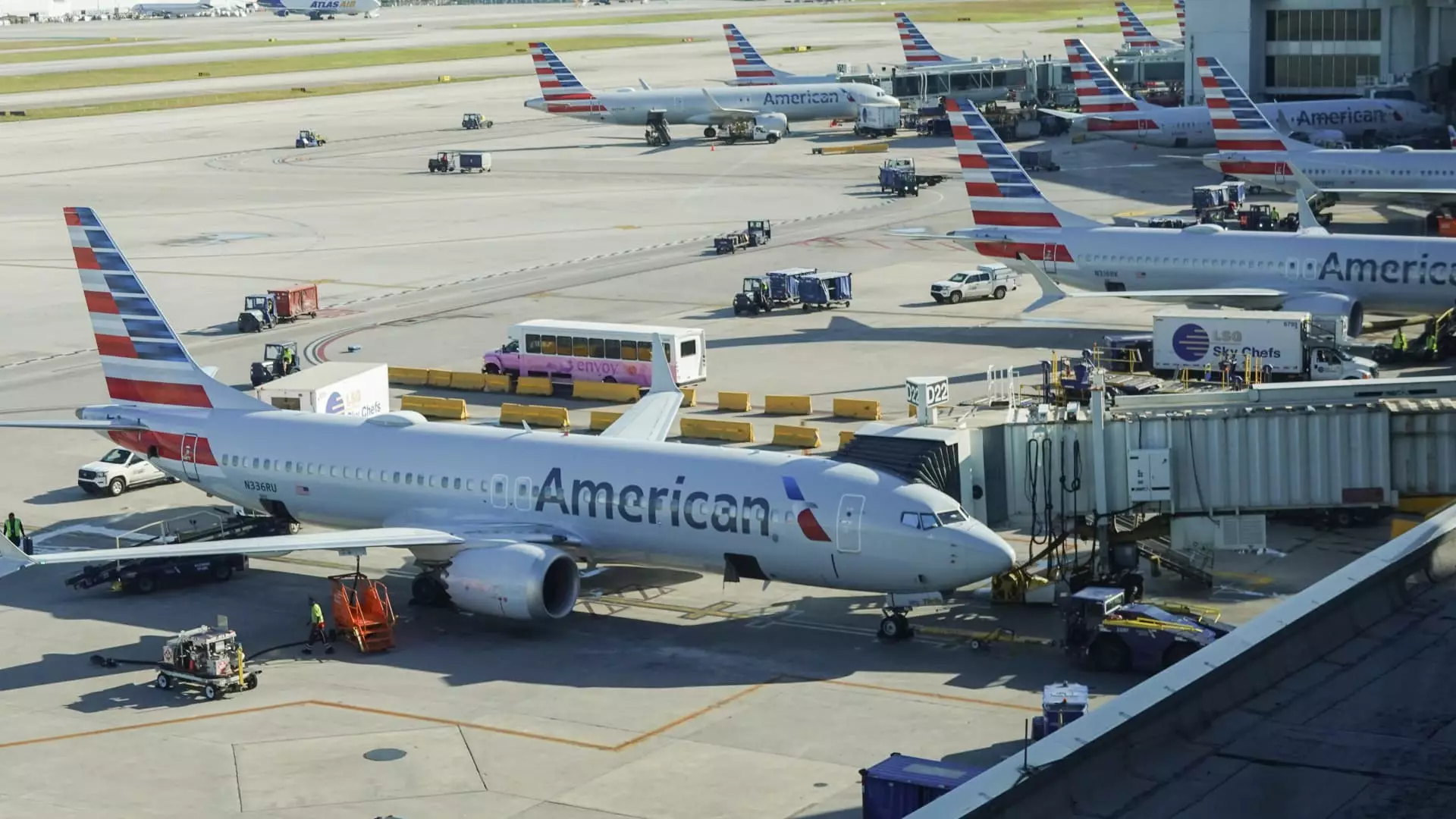In an unforeseen turn of events, American Airlines temporarily grounded its flights across the United States on Tuesday morning due to a significant technical glitch. This incident disrupted travel plans just as carriers anticipated record numbers of passengers during the holiday rush. By 7:55 a.m. ET, the airline managed to lift the ground stop, which lasted less than an hour, much to the relief of travelers and airline officials alike. Despite the swift resolution, the episode raises critical questions about the operational robustness of airlines during peak travel times.
According to American Airlines, the hiccup was linked to a system provided by a third-party vendor, which is responsible for essential data pertaining to the aircraft’s weight and balance. This crucial information is required before flights can embark from the gate. While the airline confirmed that the problem had been rectified, the underlying vulnerability exposed by this incident could lead to concerns about the reliability of the technology platforms that airlines depend upon.
American Airlines issued an apology for the disruption, underscoring the inconvenience caused to passengers. Ground stops are a usual protocol implemented by airlines to manage turbulent operations, not only due to technical failures but also in response to weather-related issues. The Federal Aviation Administration (FAA) clarified that the ground stop was initiated following a request from American, highlighting the collaborative nature of air traffic control amid operational crises.
Ground stops serve as a safeguard against overwhelming destination airports, preventing a backlog of aircraft arriving without available gates. However, the necessity for such measures, particularly tied to technology failures, suggests a deeper issue in airline operational management. The travel industry has faced mounting scrutiny concerning the resilience of its systems, particularly in the wake of mass cancellations seen during past holiday seasons. For example, the notable operational failure experienced by Southwest Airlines at the end of 2022 and Delta’s operational woes linked to a significant software outage earlier this summer highlight the fragility of current airline infrastructures.
As travelers prepare for the upcoming holiday season, these types of disruptions inadvertently affect traveler confidence. With American Airlines operating a reduced schedule on Christmas Eve in comparison to other days within the holiday period, the specter of operational challenges looms large. Any reoccurrence of technical difficulties might not only lead to flight delays but can also tarnish the reputation of the airlines involved.
While American Airlines successfully navigated this particular technical hurdle without any cancellations tied to the incident, the event serves as a reminder of the necessity for airlines to continuously assess and enhance the resilience of their operational systems. As the travel industry braces for a surge of holiday travelers, the importance of seamless technology integration cannot be overstated. The incident is a crucial learning moment for airlines as they aim to maintain efficiency and customer satisfaction during high-demand periods.


Leave a Reply